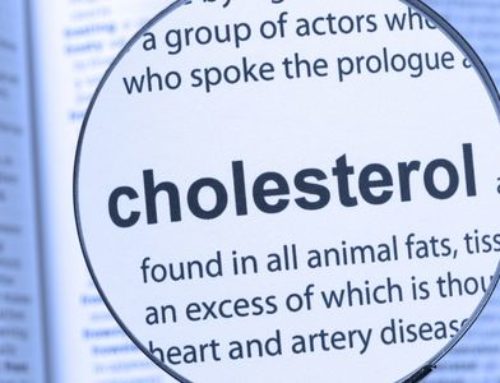
Have you been diagnosed with Hashimoto’s disease, and wondering whether you need to change your diet? There are some things that you can do to support your health, but the good news is that you don’t need to be restrictive or cut anything out.
In fact, a healthy diet for your thyroid is more about what you include, than what you leave out of your diet.
What is Hashimotos disease?
Hashimoto’s disease is an autoimmune disease that results in damage to the thyroid gland (1). The thyroid is responsible for producing hormones that play a role in metabolism, as well as in growth and development (2). People with Hashimoto’s disease can experience symptoms such as fatigue, weight gain, constipation, dry skin, decreased heart rate, trouble tolerating the cold, or joint and muscle pain, although some people in early stages may have no symptoms at all (1).
What should I include in my diet?
By now you may have done some googling to see what you need to avoid in your diet to improve your symptoms. The great news is that you don’t need to avoid anything at all. Instead, the focus should be on including foods rich in certain nutrients that can support the health of your thyroid and your overall health and wellbeing at the same time. And the bonus? No expensive supplements or crazy diets needed!
Minerals
The minerals that can help with proper functioning of the thyroid include iodine (3), selenium, zinc, iron, and magnesium (4, 5). A deficiency in these minerals can decrease thyroid function so it is important to ensure you are having some good sources of these in your diet.
However, there can be too much of a good thing – avoid taking supplemental forms of these minerals unless you have been directed to do so by a health care professional (5).
Supplements can increase your intake of these minerals to way above what your body needs and can decrease thyroid function.
Vitamin D
Studies have found that vitamin D deficiency is common in people with Hashimoto’s (5). However, it is still unknown whether thyroid issues cause vitamin D deficiency, or the other way around. Or if there is something else at play that hasn’t been identified yet. While science is figuring this part out, it’s a great idea to prevent a vitamin D deficiency or correct it if you have been diagnosed with one. There are some food sources of vitamin D, and you can make up the balance with adequate sunshine or taking a supplement if you have been advised to do so.
Protein
A low intake of protein may increase the levels of Thyroid Stimulating Hormone (TSH) a hormone that is high in people with Hashimoto’s disease (5). If you have an adequate protein intake already, then there is no need to increase it. However, you can get the best out of your protein sources by aiming for less processed forms of protein such as meat, seafood, fish, and eggs, or vegetarian sources such as legumes or tofu. This is because these are also great sources of minerals that can support your thyroid function.
Fibre
Some people with Hashimoto’s can experience constipation (5). There is also some evidence that having a healthy gut microbiota may provide some benefits for thyroid function in Hashimoto’s disease (4, 5). Increasing your intake of fibre (found in plant foods) can be beneficial. If you are experiencing constipation, it is also a good idea to ensure you have a good intake of fluids to make things softer and easier to move through.
That’s great, but what do I eat?
To get the above nutrients, focus on regularly including whole foods in your diet. Good sources of the nutrients you need include (6):
| Food | Good source of… |
| Fish and seafood | Iodine, iron, selenium, magnesium, omega-3, protein
Salmon is a source of vitamin D |
| Eggs | Iodine, iron, selenium, protein |
| Meat and poultry | Iron, zinc, selenium, protein |
| Dairy | Iodine, magnesium, protein |
| Whole grains | Iodine, selenium, magnesium, fibre |
| Legumes | Iron, selenium, magnesium, protein, fibre |
| Nuts and seeds | Iron, selenium, magnesium, zinc, fibre, protein |
| Mushrooms | Vitamin D, selenium |
| Leafy greens | Iron, magnesium, fibre |
| Dried fruits | Magnesium, fibre |
Do I need to go gluten free?
Hang, on, we mentioned whole grains up there. Isn’t the gluten free diet recommended?
The short answer: no.
The long answer: people who have Hashimoto’s disease have a higher risk of developing another autoimmune condition called coeliac disease. There are a small number of studies that show improvement in thyroid function on a gluten free diet but is it important to note that none of these studies screened their participants for coeliac disease before trialing the diet. They also reported that this improvement in thyroid function happened in people who also had gastrointestinal symptoms, which is the main sign that a person may have coeliac disease (5).
If you have Hashimoto’s disease, your GP may want to screen you for coeliac disease, especially if you already have gastrointestinal symptoms.
If you have been tested and confirmed that you don’t have coeliac disease, there is no benefit from excluding gluten from your diet. Wheat-based products, particularly whole wheat versions, are great sources of the minerals needed for good thyroid functioning (5, 6).
The Takeaway
There isn’t really a ‘special diet’ for Hashimoto’s disease. You might have noticed that the list above includes a wide variety of nutritious foods that can support your health, both for your thyroid, and for your health overall.
If you need a little support with including these foods in your diet – no worries! Check in with a dietitian, to get advice specific for your health needs, taste preferences and lifestyle.
References:
- National Institute of Diabetes and Digestive and Kidney Diseases. Hashimoto’s Disease. NIH NIDDK website. Updated June 2021. Accessed October 11, 2022. https://www.niddk.nih.gov/health-information/endocrine-diseases/hashimotos-disease
- org [Internet]. Cologne, Germany: Institute for Quality and Efficiency in Health Care (IQWiG); 2006-. How does the thyroid gland work? 2010 Nov 17 [Updated 2018 Apr 19]. Available from: https://www.ncbi.nlm.nih.gov/books/NBK279388/
- Chung HR. Iodine and thyroid function. Ann Pediatr Endocrinol Metab. 2014;19(1):8-12. doi:10.6065/apem.2014.19.1.8
- Danailova Y, Velikova T, Nikolaev G, et al. Nutritional Management of Thyroiditis of Hashimoto. Int J Mol Sci. 2022;23(9):5144. Published 2022 May 5. doi:10.3390/ijms23095144
- Ihnatowicz P, Drywień M, Wątor P, Wojsiat J. The importance of nutritional factors and dietary management of Hashimoto’s thyroiditis. Ann Agric Environ Med. 2020;27(2):184-193. doi:10.26444/aaem/112331
- Food Standards Australia and New Zealand (FSANZ). Australian Food Composition Database. Updated January 2022. Accessed October 11, 2022. https://www.foodstandards.gov.au/science/monitoringnutrients/afcd/pages/default.aspx



